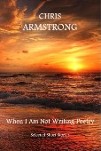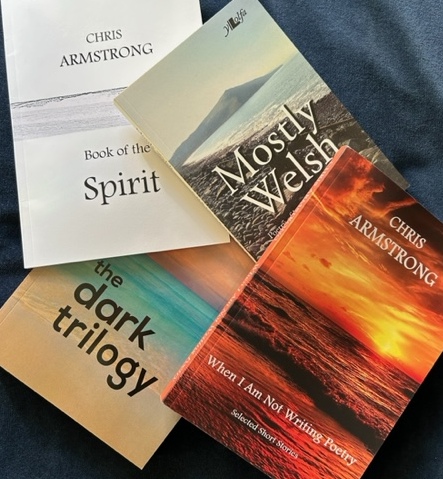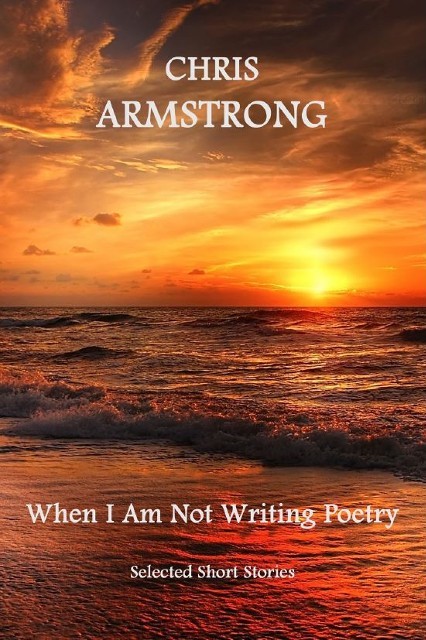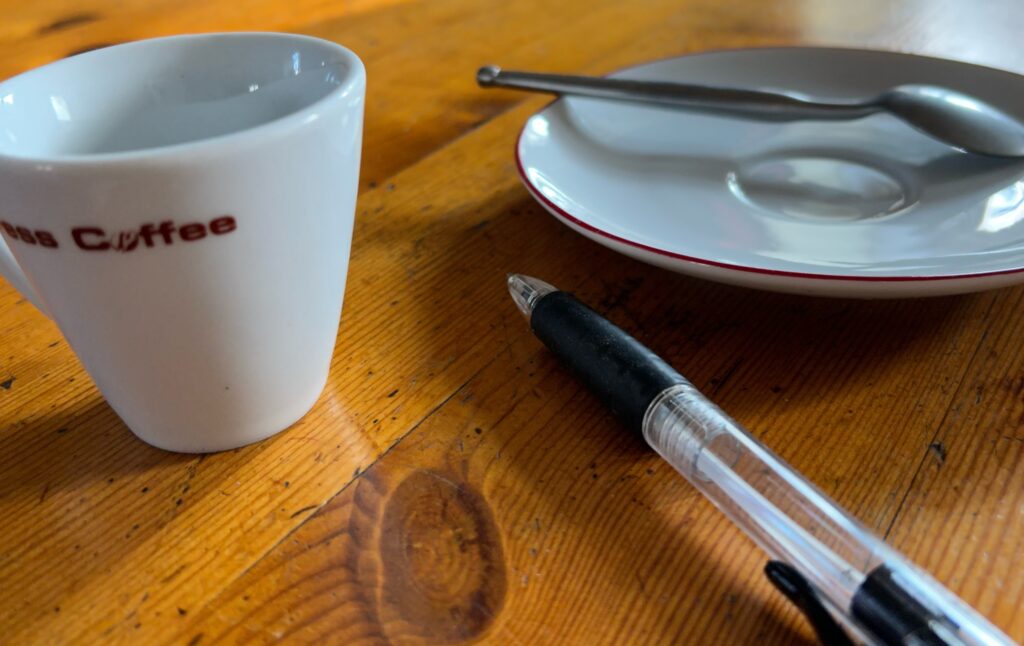There are two stories in When I Am Not Writing Poetry that are linked – the one relating the ideas behind, and the birth of, the other.
The original ideas behind The Endless Border was to write about escaping from, and searching for life beyond, Covid. A journey made by two friends into the unknown. And I wanted to use their contrapuntal conversations – a little like Beckett’s Mercier & Camier – as a means of adding a further dimension to the story. At the same time it was to be a journey of discovery, and John Bunyan’s The Pilgrim’s Progress [from This World], to That Which Is to Come came to my mind.
As a poet I was also interested in experimenting with the text on the page. I was aware that the Russian poet Osip Mandelstam had written of The Inferno and especially the Purgatorio as “glorifying the human gait, the measure and rhythm of walking, . . . In Dante philosophy and poetry are forever on the move, forever on their feet” and I wanted my text to move along at a slow walking pace and for the conversations to be at the same leisurely pace. Both inconsequential and significant, casual yet intrinsic, in time and timely. Seamus Heaney wrote of stepping stones – those “stations of the soul” – that venturing out on them into the middle of a fast running stream left you on your own, at once giddy and rooted to the spot, moving yet stationary, and I saw my little pieces of text as the stepping stones on our journey: we were never quite still yet we balanced on our path, pausing, walking, stopping, ambling aimlessly yet crossing a divide. We were:
“attracted at one and the same time to the security of what is intimately known and the challenges and entrancements of what [was] beyond us”
Seamus Heaney. Something to Write Home About. (in Finders Keepers: Selected Prose 1971-2001. Faber & Faber, 2002)
A similar suggestion of slowing down the reader was voiced in an interview in November 1980 with the poet Helen May Williams, when the poet Lee Harwood said:
“I like a few words scattered around the page. The idea is that you should just say the few words that are a block, and then a silence, and then the next block. And hopefully, the way you lay it out on the page will suggest the length of silence and so on. One can never notate completely accurately; you can try to hint at it…”
Lee Harwood Interviewed in Leamington Spa, on 29th November, 1980 Link
I tried to slow down the reading of my story to walking pace by inserting random spaces into the text slowing us down as we were aware of all life flowing past. Slowing down the reader. I suppose it may work for some readers but perhaps not for others. We were looking for a future. Searching for the horizon so as to stand on the edge of the past and see a life ahead. This picks up a theme from my long (as yet unpublished) poem, The Elegies of Time (watch for my next collection of poems!) and from many of my other poems, as well as creating a connection – explicit in my title – with my favourite englyn (a traditional Welsh short-form poem): Y Gorwel, by Dewi Emrys.
Behold an illusion like a wheel’s rim,
A magician’s work surrounds us.
An ancient distant non-existent line,
An endless border it cannot define
The englyn as originally written in Welsh is:
Wele rith fel ymyl rhod – o’n cwmpas,
Campwaith dewin hynod.
Hen linell bell nad yw’n bod,
Hen derfyn nad yw’n darfod.
Translation from the Welsh by David Llewelyn Williams. The Cambrian News, Society Newsletter, Welsh Society of Vancouver, Canada, July 2012 [p.7]
The second story, The Birth of a Story is about the writing of The Endless Border. In structuring The Birth of a Story, as with the first story, I wanted to experiment with form and parallel discourses, exploring the boundary between prose and prose poetry/concrete verse; and also to explain the thinking and ideas of the original, The Endless Border. Once again, I was experiment with structure and voice, bringing in other voices and thoughts to the writing process. My walking companion, my Reader, is ever present and I imagined editors and other commentators watching the text grow and, in some small way, contributing thoughts that influence the writing.
Some of the original references are explained (for example, the banjo!) and there is further exploration of the process of writing, of the source of what Philip Larkin would have called “words of my inner mind”:
“another author’s experience of writing, an experience he had related to and understood, but at the same time, thought that it didn’t quite describe it as he felt it. The idea of a dog inside his head pushing his thoughts out onto the paper…”
The dog inside his head came from: Kamel Daoud: ‘February 7 – While it’s snowing outside: the real secret to being a columnist’ In Chroniques. NY: Other Press, 2018.
In The Birth of a Story I was exploring the processes and the influences that brought about The Endless Border: for example, I recognised religious overtones in the suggestion that ‘the word’ (and thus the process of writing) and ‘the way’ are synonymous (both the process of writing the original and the walking of the path were voyages of discovery) and perhaps, in consequence, one of the voices came from the doubting disciple, Thomas:
“Lord,” said Thomas, “we do not know where You are going, so how can we know the way?”
John 14:5-6.
Dhyāna in Hinduism means contemplation and meditation as a means to self-knowledge.








